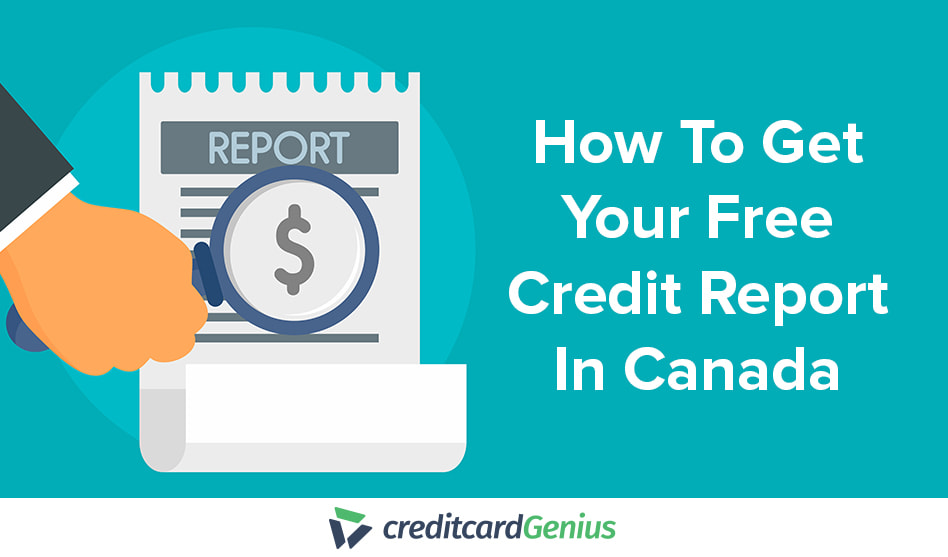Before you apply for a mortgage or even begin house hunting, it’s helpful to know where you stand with your credit score. It's generally agreed that 680 is a good credit score for a mortgage in Canada.
But, of course, higher is always better. A solid score can improve your chances of getting approved, and a high score will earn you the best interest rates.
Here, we'll explain what number house hunters should aim for to get a reasonable mortgage rate, and the steps you can take to bump up your score.
Never miss an amazing deal again + get our bonus 250+ page eBook for FREE. Join 50,000 other Canadians who receive our weekly newsletter – learn more.
A credit score of 680 or more is best for a mortgage
Although there’s no magic number for what qualifies you for a mortgage, a credit score of at least 680 is best when applying for a mortgage. While 650 is considered a "good" credit score, 680 is the sweet spot where mortgages are concerned.
Essentially, an applicant's credit score tells lenders how much of a risk it is to lend them money. For a purchase as big as a house, especially in some of Canada's most desirable areas, it's no surprise that lenders prefer a high score.
A high score benefits you too, since lenders will offer you the best interest rates.
Prime vs. alternative mortgages
Top Canadian lenders, including those from the big banks, offer prime mortgages. These loans have stricter eligibility requirements, and a high credit score can earn you reasonable interest rates. If you don’t have a solid score, though, you might consider an alternative mortgage from a B lender.
B lenders are not big banks. Instead, they’re credit unions or other financial institutions with mortgages that are easier to qualify for. These lenders may be less strict with their requirements for proof of eligibility or credit score, but the tradeoff is typically higher interest rates or additional fees.
Still, if you’re looking to buy a home and have a less-than-stellar credit score but no time to build that score, an alternative loan can be a viable option.
Other factors that impact your mortgage approval
Your credit score is just one element in determining mortgage eligibility, but it's a significant one. Here are additional factors that lenders consider:
Debt-to-income ratio
Lenders look at how much debt you have in relation to how much money you make. This is known as your debt-to-income ratio (DTI), typically expressed as a percentage.
To find your DTI, add up all of your minimum monthly payments and divide the result by your gross monthly payment (that’s your income before taxes and deductions). Then, multiply the result by 100 to make it a percentage.
Although some lenders will work with you if your DTI is up to 43%, most prefer a DTI of 36% or lower. This shows lenders that you don’t have more debt than you can handle.
Down payment
You probably already know that the more money you put down up front, the better. This ensures that the lender will not lose as much if you default on your loan, as the market may cool or there may be fees related to the sale of the house.
Plus, a large down payment means that you have more equity (and more at stake) in the home. This makes you appear more credible to lenders.
The minimum down payment for a house in Canada varies depending on the house's price. Here's a helpful chart from the Government of Canada to illustrate this point:
| Purchase price of your home | Minimum down payment |
|---|---|
| $500,000 or less | * 5% of the purchase price |
| Between $500,000 and $999,999 | * 5% for the first $500,000 * 10% for $500,001 and up |
| Over $1,000,000 | * 20% of the purchase price |
However, if you're self-employed or have a low credit score, your lender may not approve your mortgage for just the minimum down payment amount.
Proof of income and employment
If you look like you bounce between jobs with significant gaps in between, or if you're currently unemployed, lenders won't have much trust in you. To demonstrate proof of income, lenders typically require verifiable income documentation.
Your income is also indicative of your ability to pay off the mortgage.
For instance, some lenders may require items like these:
- A recent letter of employment
- Your two most recent pay stubs
- Bank statements showing direct deposits
- Tax returns
- Current contract(s) with your employer
Can you get a mortgage with bad credit?
It’s disheartening if you’re trying to buy a home with bad credit, but it’s not impossible to secure funding. You may simply need to take a few additional steps.
Increase your down payment
A good way to improve your approval odds is to make a larger down payment. Typically, you’re advised to put down around 5%, but putting down more signals to the lender that you’re invested and less of a risk.
Of course, this can be a stretch for many people, but if you can put 20% down, you can also avoid paying mortgage default insurance, which can save you hundreds of dollars a month on your mortgage.
Get a co-signer
You can also ask a trusted relative or friend to cosign your loan. Choose someone who has a solid financial background – preferably an excellent credit score and minimal debt – and is willing to be added to your application. The lender will consider this person’s financial information and history in addition to yours.
Having a co-borrower can make lenders feel more at ease, as the co-borrower promises to assume the loan if you stop making payments.
Try an alternative lender
If you’ve already reached out to mortgage lenders without any luck, you might look at alternative lenders. These alternative lenders offer B mortgages, which serve borrowers with poor credit or high debt-to-income ratios.
Be aware that these lenders typically require a 20% down payment and charge higher interest rates, so you should try to get a prime mortgage before pursuing this option.
How to improve your credit score
We can’t promise that raising your credit score will be easy, but it is possible with some time and effort.
- Pay your bills on time: This includes credit card bills, student loans, car payments, etc. Even if you can’t pay off the entire balance, at least make the minimum required payment.
- Maintain good credit utilization: Using more than 30% of your available credit can hurt your score and raise red flags for lenders. Instead of applying for more credit, focus on paying down what you owe.
- Monitor your credit report: You can get your credit report for free from several different sources, and you can pay for credit monitoring services, too. Look for areas where you can improve, and, of course, inaccuracies.
- Use a credit-building program: These are especially useful if you don’t qualify for credit cards but want a way to prove creditworthiness. An excellent choice is KOHO Credit Building, which gives you a small 6-month line of credit and reports your payments to credit bureaus – just keep $7 in your account to stay on track.
KOHO Credit Building
FAQ
What is a good credit score for a mortgage?
Aim for a credit score of 680, as this score offers some of the best approval odds. You can find lenders willing to work with you if you have a lower score, but they may charge you significantly higher rates.
Can I get a mortgage with a 600 credit score in Canada?
You’ll probably have a hard time finding a lender who’s willing to work with you if you have a credit score of 600. Lenders will likely recommend that you have a co-signer to help improve your chances of approval.
What is the lowest acceptable credit score to buy a house?
Generally speaking, the minimum credit score required to get a mortgage is around 650, but many lenders require a higher score than that. Maintaining a good credit score is always important, especially if you want to purchase property.
What is a mortgage for people with bad credit?
A bad credit mortgage is commonly referred to as a B mortgage, and alternative mortgage lenders typically offer it. Although these lenders are more willing to offer mortgages to individuals with low credit scores, they usually charge higher interest rates.
creditcardGenius is the only tool that compares 126+ features of 227 Canadian credit cards using math-based ratings and rankings that respond to your needs, instantly. Take our quiz and see which of Canada's 227 cards is for you.











 GC:
GC: 


































Comments
Leave a comment
Required fields are marked with *. Your email address will not be published.
Showing 2 comments